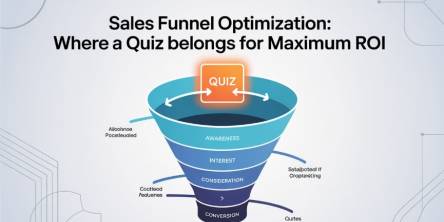Fleet Management Software: Benefits for Small Businesses

The concept of maintenance, monitoring, etc. of a group of vehicles, simply known as fleet management, is no cakewalk. Then there are also the additional concerns about driver safety, vehicle performance, etc. that render the task much more complicated. Thankfully, the market offers a simple solution to deal with all that: fleet management systems that help companies track every single facet of the operations of their fleet. And the fleet maintenance software might seem like a solution that only large businesses need. Though you would be surprised to learn how this software could improve your business’s operations, cost savings, and driver retention.
But how does that help? Well, here are some of the primary benefits of fleet management systems to help you understand:
1. Better customer service: For a business that involves its representatives being in the field stands to benefit from integrating a fleet management solution in its operational strategy because tracking is conducive to better operations. Furthermore, it can also be used to provide live updates to customers about the movement of their orders, troubleshoot any issues, handle any delays, etc.
2. Streamline vehicle maintenance management: A fleet management system allows managers to track every vehicle in the fleet via GPS as well as monitor the vehicles’ performance and any performance issues that may arise. What that means is the ability to track the wear and tear of tires, oil changes, braking habits, maintenance schedules, etc. allows the company to decide when a particular vehicle needs repairs or regular maintenance.
3. Improved driver behavior: With a tracking system, one can keep a close eye on every driver’s behavior. We will start with the basic benefit: knowing that they are being monitored is an incentive for drivers to work as productively and efficiently as possible. This means they are unlikely to deviate from the assigned route to their destinations or engage in any other behavior that is not productive. Plus, fleet management systems also flag aspects that merit a closer loo; say a driver in the fleet drives improperly, too fast, or brakes too hard — all of this information means the driver needs behavior correction, perhaps through better training, to ensure safe and good driving behavior.
4. Reduce costs: Modern fleet management systems come equipped with a plethora of avant-garde features and functionalities such as GPS tracking which can play a crucial role in helping reduce costs for the company. How? It is quite simple, actually; you see, with GPS tracking, it becomes that much easier to gain deep insights into the fleet, its operations, and several other such aspects. This, in turn, offers data about the costs associated with the operation of each vehicle, thus affording the company to adapt its strategy. This means they can either change their strategy to enhance efficiency or perhaps use a completely different strategy if the need arises. Also utilizing a business fuel card can lead to significant cost savings for your company by providing access to discounted fuel prices at partner stations, enabling you to keep your fuel expenses in check.
There is no denying the fact that any business that involves the management of multiple vehicles would do well to use a fleet management solution if they are not already using it. After all, such a solution stands to empower the business with structure and the ease of executing tasks such as tracking and monitoring vehicles, route planning, driver allocations, and countless other such things. Besides the operational benefits, fleet management systems also stand to cut down costs, enable better levels of safety, enhance vehicle performance, and more. However, before you dive right into it, we advise that you take the time to find an experienced fleet management software development services company or vendor. Their skill and expertise will go a long way in ensuring the success of your solution.
Similar Articles
We live in the age of cloud computing. That's plain to see. However, what may escape many are the operational and financial challenges of managing multiple independent clusters.
Times have changed and how! Take modern technology and the fast-paced digital economy, it is driving. Given the market conditions, any company's infrastructure has become more than just a technical detail.
It has been for everyone to see that the modern digital economy is distinguished by high volume, real-time financial transactions.
Business success has become reliant on efficiency and agility of the underlying technology infrastructure. Clearly, companies now depend on cloud computing to provide seamless services while managing exponential data growth.
Hospitals operate in environments where availability and patient safety are paramount at all times. As medical supply chains expand and regulatory oversight becomes more demanding, manual tracking methods introduce delays and risk.
Every sales funnel has one core goal: turn attention into revenue as efficiently as possible. Yet many funnels leak value at critical stages—visitors bounce, leads go cold, and sales teams chase prospects who were never a good fit.
Decentralized Finance (DeFi) has transformed how users earn passive income through blockchain-based financial systems. Among its most popular use cases,
Staying organized can feel like a full-time job. Between meetings, deadlines, and personal commitments, it’s easy to get overwhelmed.
Choosing the right GIS mapping software depends on what you need to accomplish. Some platforms cater to developers who want to build custom applications from scratch.









